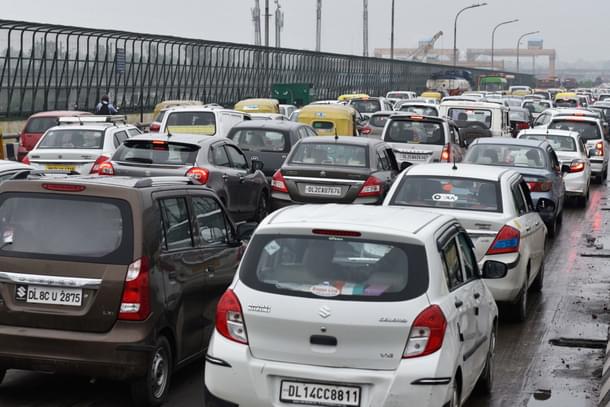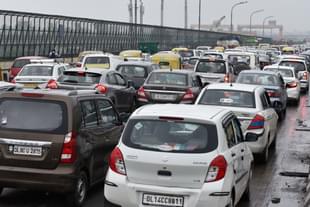Economy
Not Just Millennials Or Cars: The Old Ownership Model No Longer Works For Many Products
R Jagannathan
Sep 20, 2019, 06:00 AM | Updated Sep 19, 2019, 08:28 PM IST
Save & read from anywhere!
Bookmark stories for easy access on any device or the Swarajya app.


Maruti Suzuki chairman R C Bhargava has, in one simple interview, punctured the hyperventilation of the media and political parties about Finance Minister Nirmala Sitharaman’s statement that millennials are not that keen to buy cars. They are okay with using ride-hailing services like Ola and Uber to move from Place A to B.
More interestingly, Bhargava has pointed out the futility of expecting car sales to rise by 10-15 per cent annually in a country with an annual per capita income that is barely $2,200.
Mint newspaper quotes him as saying: “the per capita income in India is almost around $2,200 (per annum) and in Europe, it is approximately around $40,000. In terms of all standards, which add to the cost of the product, there is no difference between Europe and India… How do you expect a country with such a low per capita income to have enough customers to have the capacity to pay for a car and grow at 10-15 per cent every year?”
Three points are worth making as addenda to Bhargava’s comments.
First, if the car being sold in India is almost the same as that in Europe, it means domestic manufacturers should be focusing on exports, and not just the domestic market. They should be using what profits they currently earn to build export markets, and not stand with a begging bowl before the government, seeking duty cuts.
Second, Bhargava also said that Indian taxes on automobiles were much higher than in Europe and even China. Affordability is clearly the problem, but the real cost of car ownership is even now understated and goes beyond just a simple addition of sticker prices and taxes. The true cost includes the cost of depreciation, maintenance, and repairs after paying the EMIs on loans. But even this does not give the full picture.
In most cities today, parking spaces in new buildings cost anything from Rs 2-Rs 5 lakh for each apartment owner, and this can sometimes double the cost for lower-end or second-hand cars. Once we take the total cost of car ownership into account, one can hardly blame just millennials for the dent in car demand. Maybe all consumers are learning to recognise the true price they are paying for owning cars.
Third, we come to a corollary. A structural demand shift may be taking place due to changing consumer attitudes to debt in a digital economy.
Many young people, and even some older people, no longer think that you need to own something to enjoy its benefits. The ownership society is being gradually replaced with the leasing or renting society, with no debt piling up. With regular jobs shrinking and the gig economy expanding its scope, few consumers may want to take on long-term EMI commitments when jobs may be ephemeral.
Today you can lease cars and homes, and often that is the cheaper option given unrealistic sticker prices. Even gadgets, which Bhargava mentioned as an alternative to buying cars, will increasingly be leased or need continuous exchanges of new for old.
When software can be rented on a cloud, why buy a copy that needs constant upgradation? When upper-end mobiles can cost Rs 80,000-Rs 90,000 a pop, and the same gadget can become obsolete in less than two years, who in his right mind will think that he needs to own it by paying full price? Especially by borrowing money.
Gadget makers will need to device continuous purchase and exchange plans to sell their shiny new things.
The ownership society is slowing dying, and soon this mindset will not just be a millennial thing. All businesses, whether producers of cars or laptops or smartphones or even homes, will have to rethink their business models.
Jagannathan is former Editorial Director, Swarajya. He tweets at @TheJaggi.




